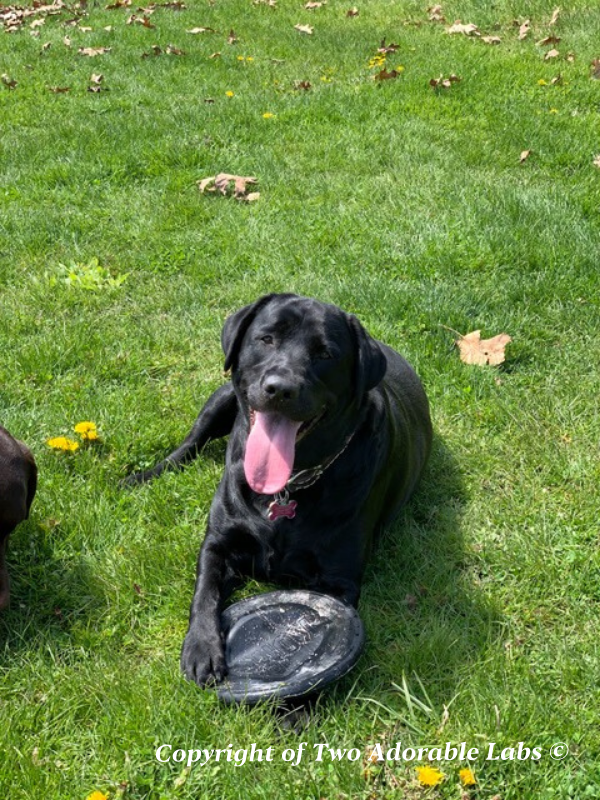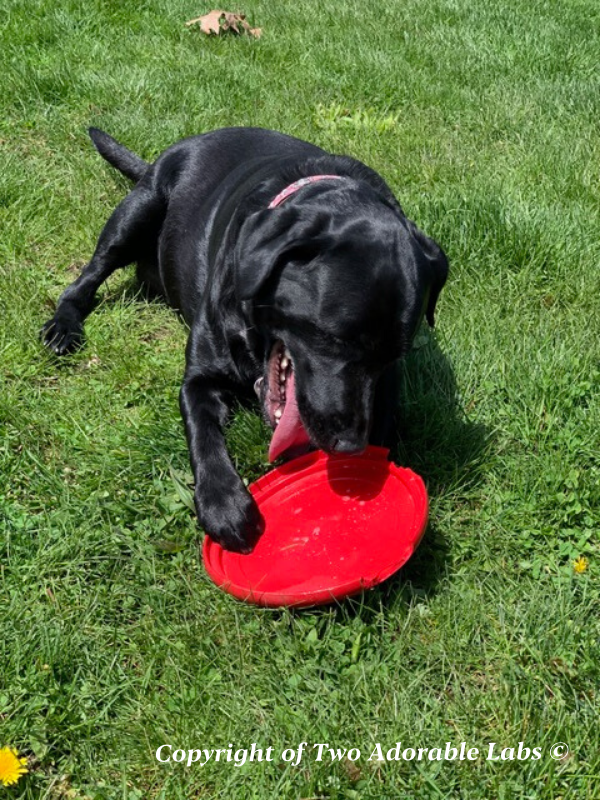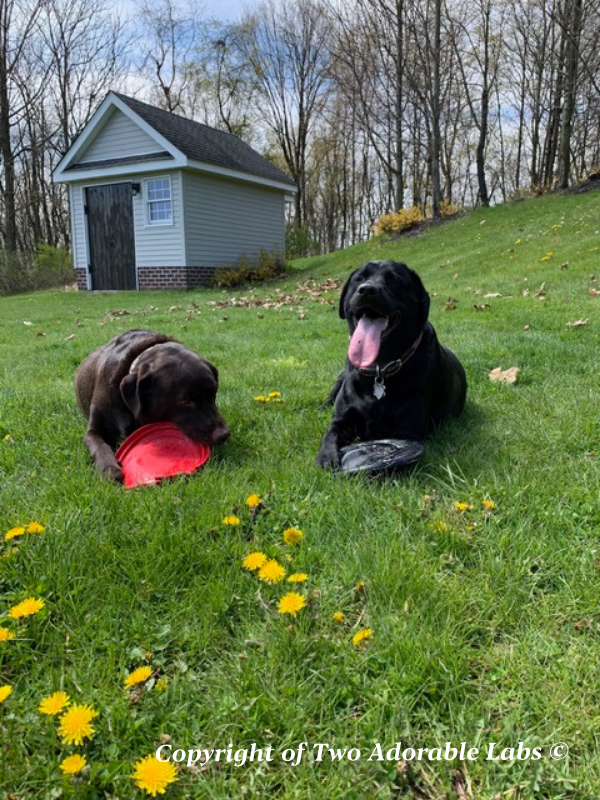What Is Dilated Cardiomyopathy In Dogs And Cats?
The 4 stages of playing frisbee...
First Jake lays in the grass (upside down), Maggie gets Jake and they play frisbee stealing each other’s Kong frisbees, they both run up on the hill and look at me, and then relax on the patio 🙂






If you are feeding your dog a boutique, grain-free, or exotic ingredient diet, watch for early signs of heart disease. Look for weakness, slowing down, less able to exercise, short of breath, coughing, or fainting. Your veterinarian will listen for a heart murmur or abnormal rhythm and may do additional test (or send you to see a cardiologist), such as x-rays, blood tests, electrocardiogram, or ultrasound of the heart (echocardiogram).
If your dog is diagnosed with DCM and eating of these diets, the following steps are recommended:
Ask your vet to test whole blood and plasma taurine levels
Report it to the FDA. This can be done online or by phone. The FDA may be able to help with testing costs for your dog. Reporting it will also help identify and solve this current problem.
Change your dog’s diet to one made by a well-known reputable company and containing standard ingredients (e.g., chicken, beef, rice, corn, wheat). Changing to a raw or homecooked diet will not protect your dog from this issue (and may increase the risk for other nutritional deficiencies). If your dog requires a homecooked diet or has other medical conditions that require special considerations, be sure to talk to a veterinarian or a veterinary nutritionist (acvn.org) before making a dietary change. You can contact the Cummings Nutrition Service to schedule an appointment (vetnutrition@tufts.edu)
Start taurine supplementation. Your veterinarian or veterinary cardiologist can recommend an appropriate dose for your dog. Be sure to use a brand of taurine with good quality control.
Any improvements in your dog’s DCM can take 3-6 months. Your dog will need regular monitoring and may require heart medications during this time. There’s no guarantee she’ll improve but is certainly worth a try.
Make sure your dog is getting the best combination of medications to treat his heart disease, as this can make a difference in his outcome. You can find a board-certified veterinary cardiologist near you on this website: http://find.vetspecialists.com/

Dilated Cardiomyopathy – An overview of the FDA Investigation: (I received this information from my vet and want to relay it to you).
560 cases of dogs affected by DCM have been reported to the FDA
119 of the 560 cases of DCM affected dogs have resulted in death
91% of DCM cases reported to the FDA were labeled Grain Free
93% of DCM cases reported to the FDA contained peas and/or lentils
Breeds most commonly reported to FDA:
Golden Retreivers
Mixed breeds
Labrador retriever
Great Dane
Pit Bull
German Shepherd
Doberman Pinscher
Australian Shepherd
Boxer
Mastiff
German SH Pointer
Shetland Sheepdog
American Bulldog
Cocker Spaniel
Standard Poodle
Bulldog
Shih Tzu
Dog food brands linked to 10 or more of the DCM cases reported to the FDA:
Acana
Signature
Taste of the Wild
Earthborn Holistic
Blue Buffalo
Nature’s Domain
Fromm
Merrick
California natural
NaturalBalance
Orijen
Nature’s Vanity
Rachel Ray Nutrish
Nutrisource
Nutro

You Might Also Like
7 Signs Of An Overstimulated Dog
Happy Wednesday, everyone! I’m finally getting to our July 4th/birthday post that I’ve been promising. Jake and Maggie had a great birthday with lots of treats and presents. It was a hot day, and I made sure they spent enough time both indoors and outside to enjoy...
What To Do If Your Dog Gets Bit By A Venomous Spider
Happy Wednesday, everyone! I was sitting on our back patio a few nights ago watching Jake watch a spider crawl in front of him. This gave me an idea for a blog post on spiders and What To Do If Your Dog Gets Bit By A Venomous Spider. Fortunately, Jake didn't make a...



Good info! It is just as important to do proper research in what you are feeding your pets as it is to what we humans are eating! I eat no red meat so have to take the right supplements and make sure I eat the proper nutritional options in order to maintain my health…so, makes sense to do that for my fur babies????
Absolutely! Well put.